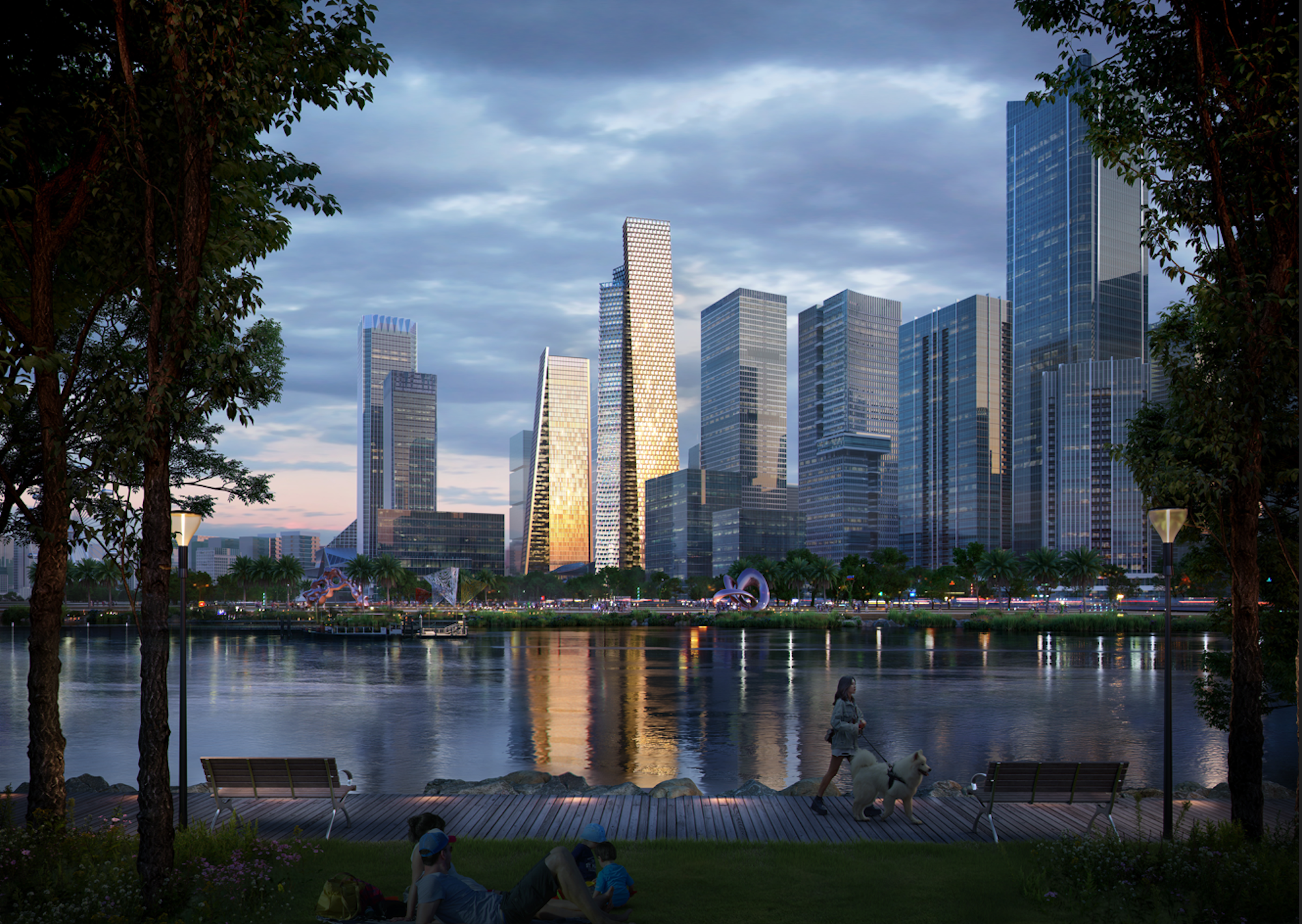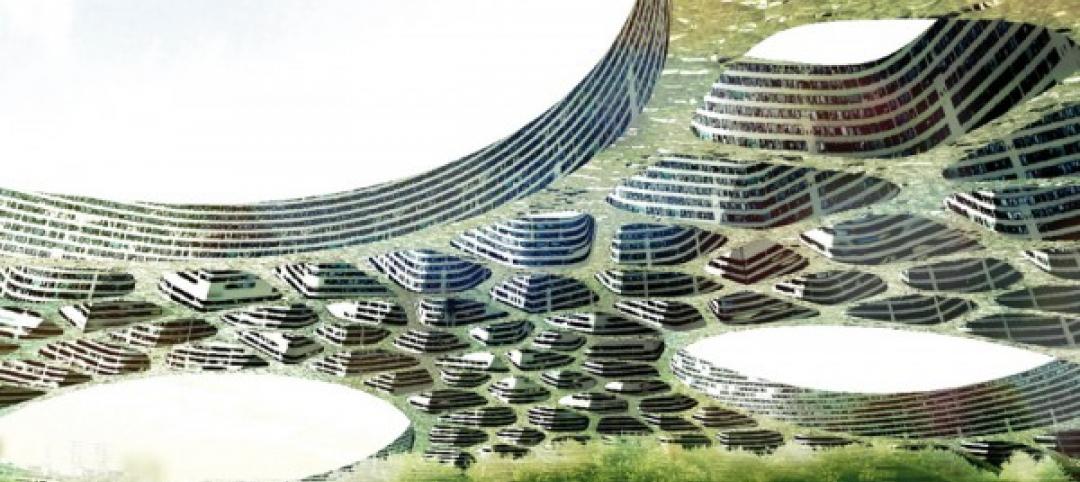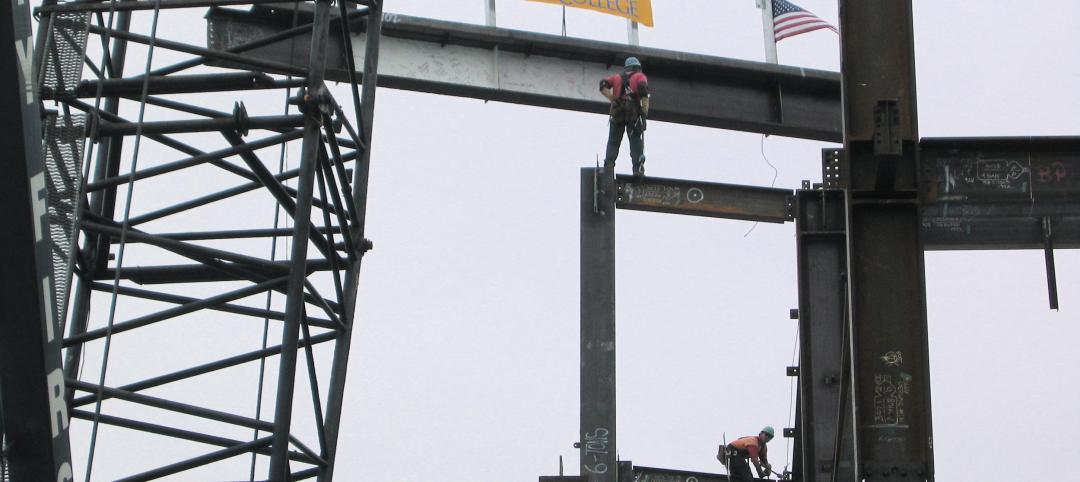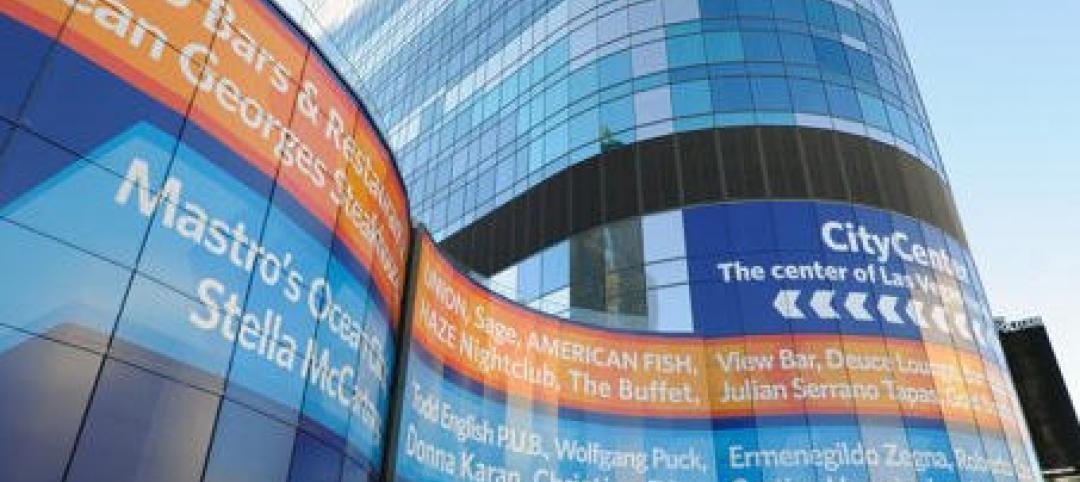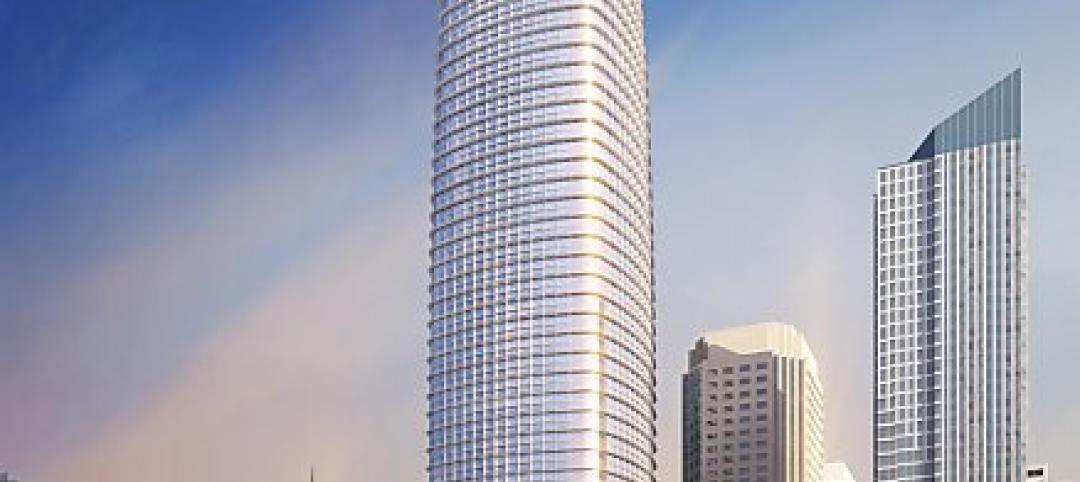BIG’s "leaning" Qianhai Prisma Towers, featuring a 300-meter-tall residential tower and a 250-meter-tall office tower, will complete the new Qianhai Bay development, solidifying Qianhai’s position as the burgeoning financial and cultural center of Shenzhen. The firm, led by Bjarke Ingels, recently won the design competition for the project.
Situated in the Guiwan District within the metropolitan city of Qianhai, the BIG-designed Qianhai Prisma Towers will flank each side of the Shenzhen Hong Kong Plaza—also known as the "green belt"—marking the entrance to the neighborhood. New workspaces, residences, and 20,000 sm of multi-level public spaces will be positioned steps from an integrated regional transport hub and the Qianhai Bay.
Both towers are defined by gently leaning volumes that taper towards the sky—a subtle gesture that adds structural efficiency while creating verdant openings between the volumes and a generous ground-floor public realm. The lush biophilia on the balconies and ledges contrasts the glass facades that shimmer subtly throughout the passing of the day.
“Both towers are conceived as simple prismatic building envelopes split open to make room for public space on the ground where they stand. The open seams and gaping corners allow the green spaces to ascend from the ground to the sky leaving wedges for outdoor gardens and terraces for the life of the people living and working within. With its timeless simplicity and inviting openness - the architecture of the two towers is firmly rooted in the urban values underpinning Shenzhen—a vertical modern city of 1000 parks,” said Bjarke Ingels, Founder & Creative Director, BIG.
The ground plane of the towers opens up to create a dynamic and welcoming urban living room while connecting the towers to the "green belt" and nearby shopping mall. A meandering biophilic pedestrian skybridge functions as a canopy, providing shade and protection from the rain while connecting the shopping mall, the retail podium, and the surrounding neighborhood.
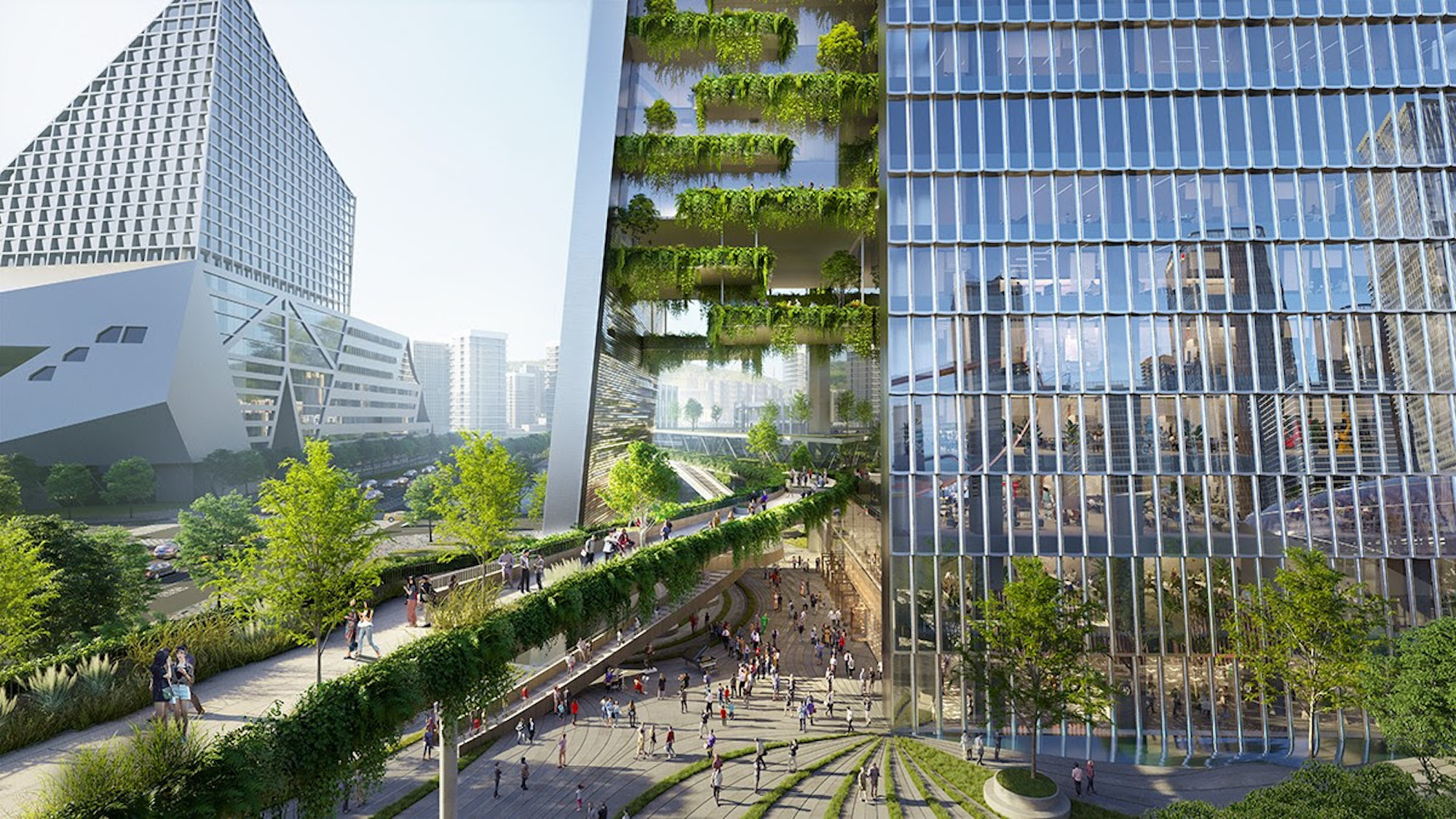
Peeking through the building envelope openings, cascading green terraces are introduced from the street level and up to the roof, where office workers and visitors can enjoy 360-degree views of Qianhai Bay. PV cells are integrated in the slightly tilted office tower’s West and East façade spandrel to maximize the PV efficiency. To better respond to the local climate achieving and improving thermal performance, double-skin closed-cavity façade (CCF) is used for the most exposed orientation of office tower. The apartment tower units have operable ventilation inlets built into the window frames to allow for natural ventilation.
The tripod footprint of the 130,760-sm residential tower is a radial array of three rectangular volumes that step up at different heights—providing multiple views towards the city and the ocean while creating beautiful living spaces, "sky garden" terraces, and a roofscape. Between the volumes, the envelope opens up to create a subtle crevice of green balconies, from the ground level to the roofs.
From the interior of the tower, the corners peel open to create outdoor terraces on every floor. The west tower wall extends slightly skywards to reiterate the leaning gesture—delicately joining the remaining three walls/envelopes to create a sculptural addition to the skyline.
“As the tower footprints open to the ground, they celebrate the connectivity to the transit infrastructure, retail and adjacent buildings. Pedestrian walkways connect multiple stories to provide seamless transitions between the towers and the surrounding public programs, forming a pedestrian network that leads up to the Qianhai Bay Waterfront Park,” said Martin Voelkle, Partner in Charge, BIG.
The ground floor wayfinding takes inspiration from the Qianhai Bay, oftentimes appearing as a series of ripples while facilitating the flow of people through the entrances in and around the towers. The public realm of the ground floor office tower includes an amphitheater, tree-shaded social spaces, and an under-porch bar. In response to the climatic characteristics of the region activities are located under the canopy, trees and overhangs of the building. Rainwater is collected via the sloped curtain walls, utilized for irrigation system and maintenance of the public space.
Both towers are strategically positioned between the two intercity railways; the Guangzhou-Shenzhen Intercity Railway is at the east side of the site, and the proposed Hong Kong-Shenzhen Western Express Railway will be at the west side of the residential tower. An adjacent below-grade retail corridor will provide both towers with direct access to the Transportation Hub via the below-grade lobbies. To complement the accessibility of the transport hub, an additional 966 long-term bicycle parking spaces will be available for building occupants.
The Qianhai Prisma Towers, expected to begin construction in 2025, will be BIG’s second project in Shenzhen following Shenzhen Energy Mansion’s completion in 2017.
On the project team:
Design architect: BIG
Local architect, MEP: CADG
Lighting: BPI
Fire safety: Arup
Traffic, sustainability, vertical transportation: Buro Happold
Façade, BMU: RFR
Structural engineer: Thornton Tomasetti
Landscape: Turenscape
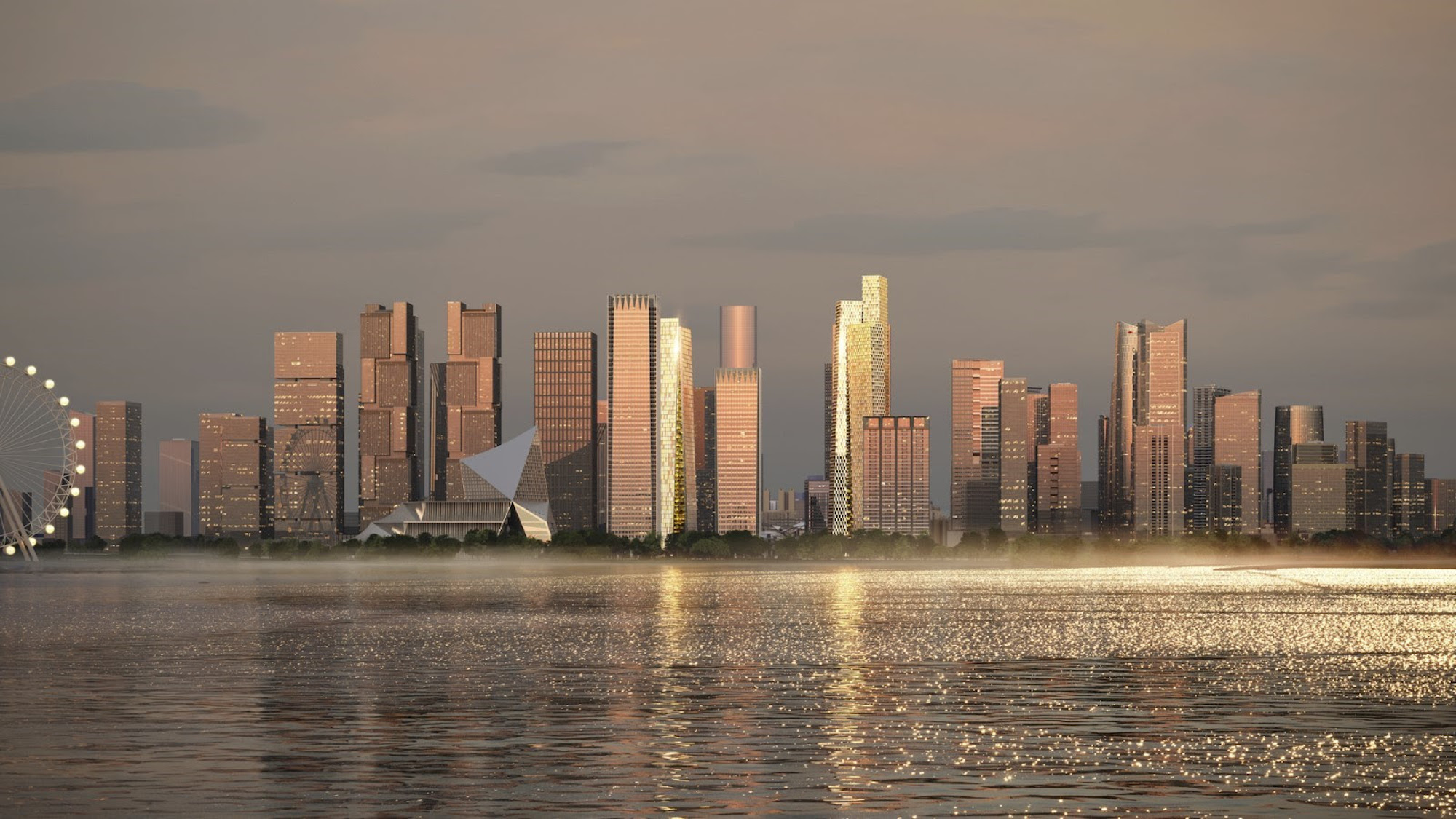
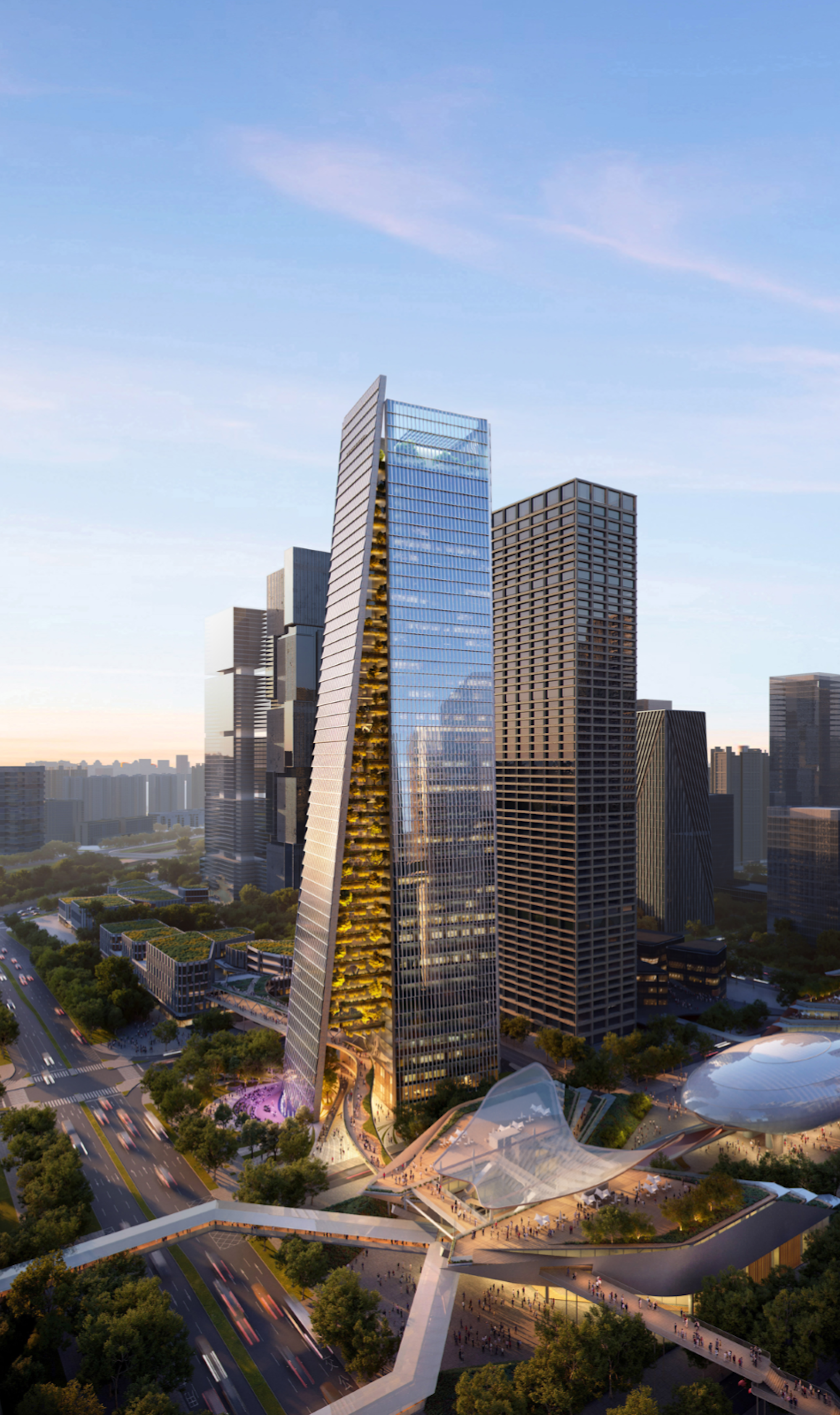
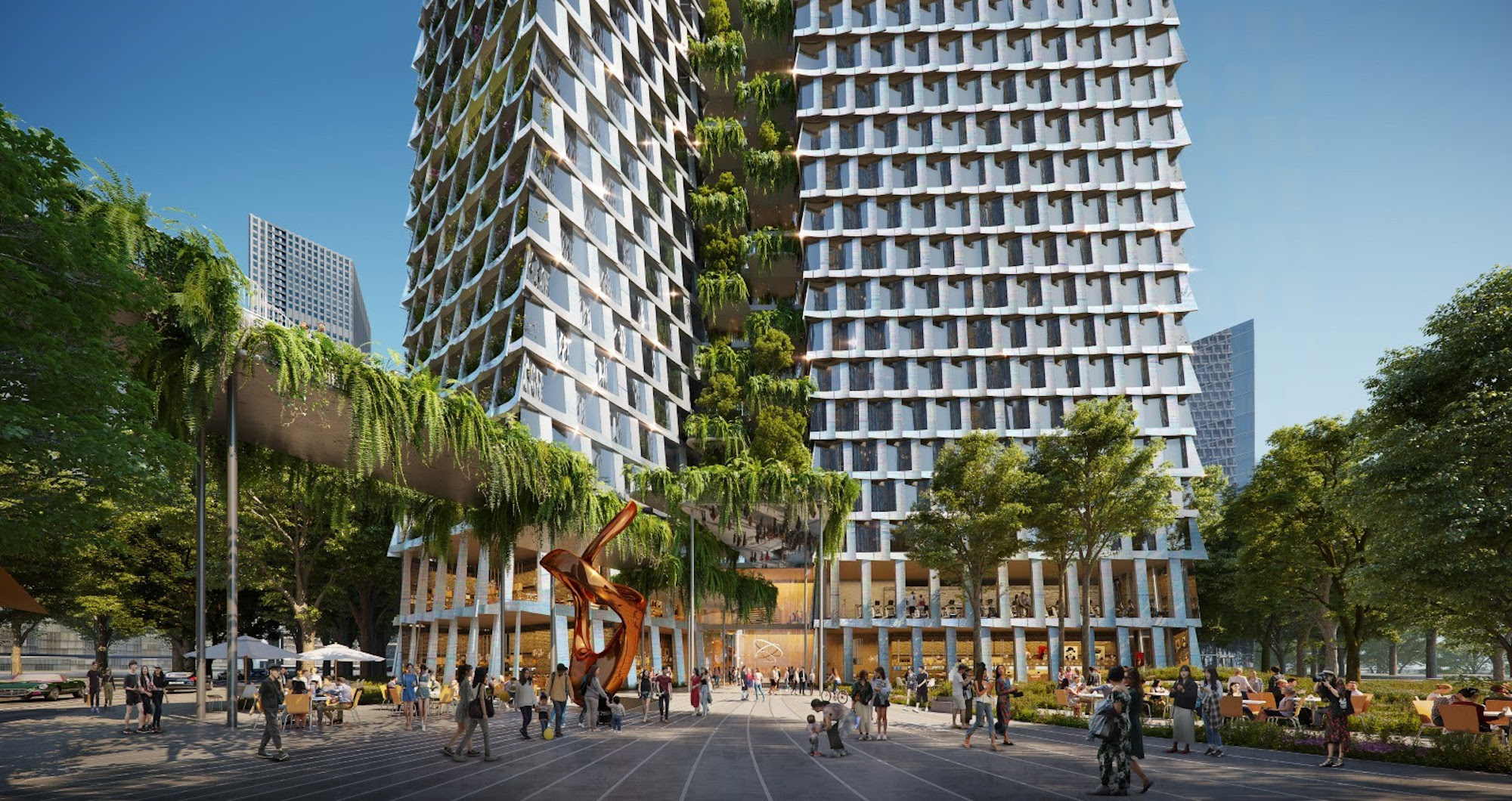
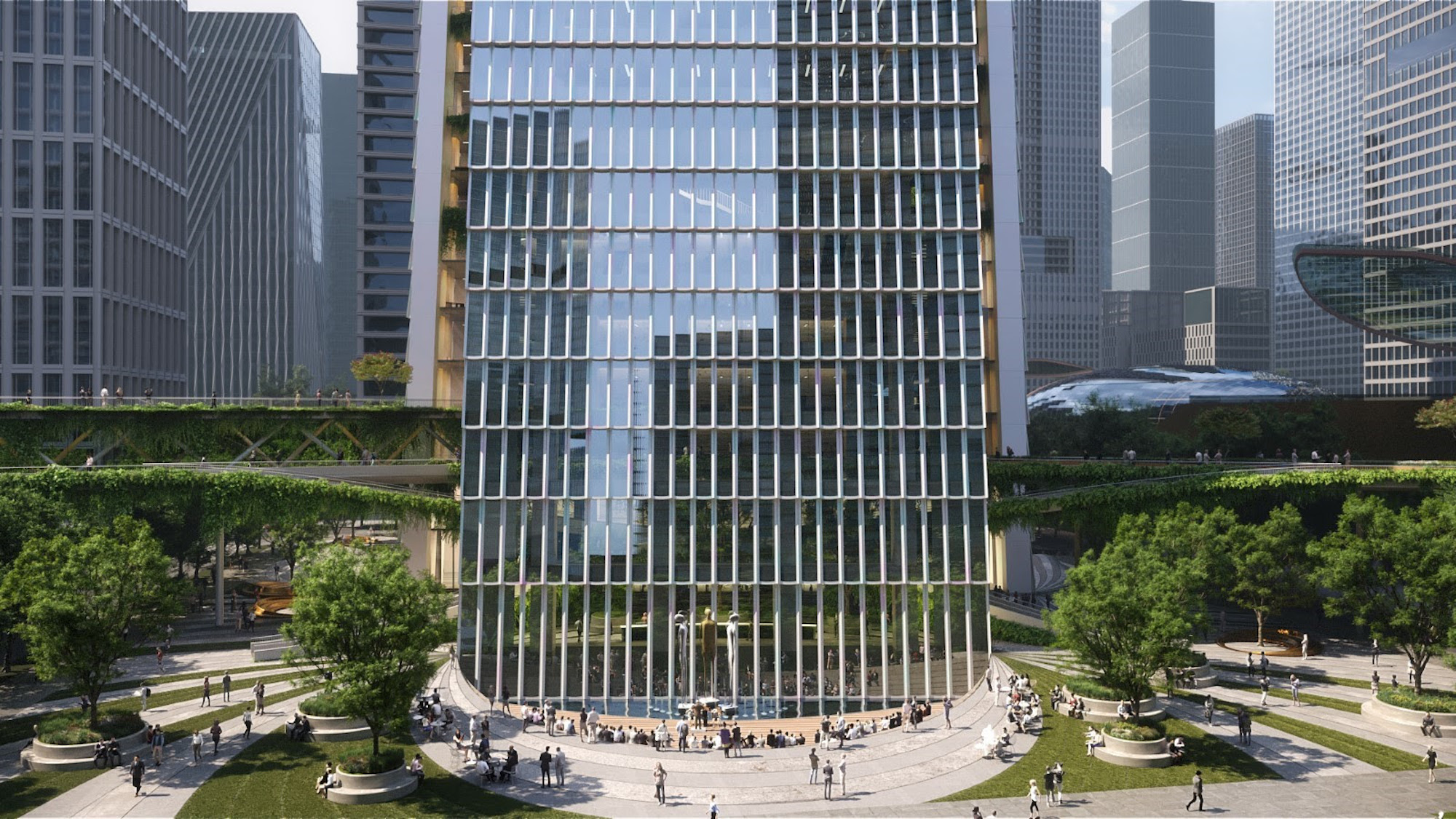
Related Stories
| Apr 6, 2012
Flat tower green building concept the un-skycraper
A team of French designers unveil the “Flat Tower” design, a second place winner in the 2011 eVolo skyscraper competition.
| Apr 4, 2012
Bald joins the Harmon glazing team
Bald has 13 years of experience in the glazing industry, coming to Harmon from Trainor where he was the regional manager of the Mid-Atlantic region.
| Apr 2, 2012
Mitsubishi unveils ultra-high-speed elevator for Shanghai skyscraper
The operation of the elevator is scheduled to begin in 2014.
| Mar 27, 2012
Bank of America Plaza becomes Atlanta's priciest repo
Repo will help reset market prices for real estate, and the eventual new owner will likely set rental rates at a new or near the bottom and improve the facilities to lure tenants.
| Mar 26, 2012
McCarthy tops off Math and Science Building at San Diego Mesa College
Designed by Architects | Delawie Wilkes Rodrigues Barker, the new San Diego Mesa College Math and Science Building will provide new educational space for students pursuing degree and certificate programs in biology, chemistry, physical sciences and mathematics.
| Mar 16, 2012
Temporary fix to CityCenter's Harmon would cost $2 million, contractor says
By contrast, CityCenter half-owner and developer MGM Resorts International determined last year that the Harmon would collapse in a strong quake and can't be fixed in an economical way. It favors implosion at a cost of $30 million.
| Mar 14, 2012
Hearing to decide fate of unfinished Harmon in Las Vegas under way
The testimony began with CityCenter consulting engineer Chukwuma Ekwueme methodically showing photo after photo of parts of the Harmon, where he and his team had chipped away the concrete pillars and beams to examine the steel reinforcing bars inside.
| Mar 14, 2012
Plans for San Francisco's tallest building revamped
The glassy white high-rise would be 60 stories and 1,070 feet tall with an entrance at First and Mission streets.
| Mar 13, 2012
China's high-speed building boom
A 30-story hotel in Changsha went up in two weeks. Some question the safety in that, but the builder defends its methods.
| Mar 12, 2012
Improving the performance of existing commercial buildings: the chemistry of sustainable construction
Retrofitting our existing commercial buildings is one of the key steps to overcoming the economic and environmental challenges we face.


